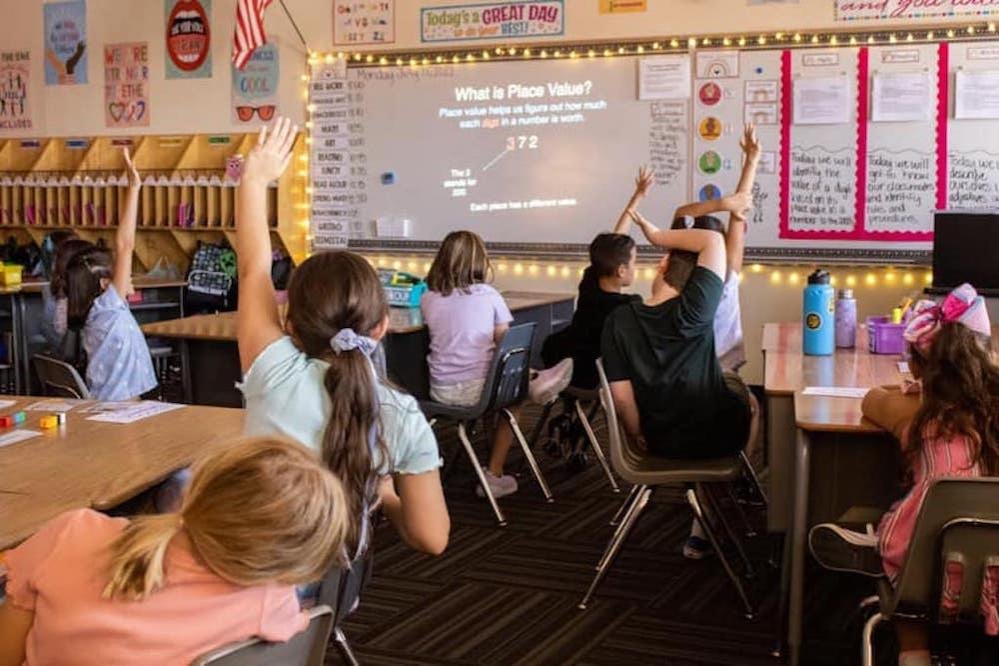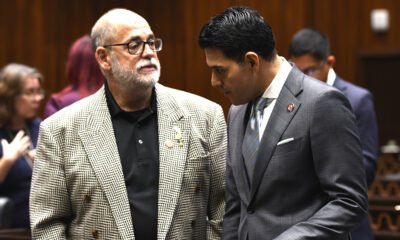Business
Arizona’s School Vouchers: A Fiscal Savior Turned Budget-Buster

Arizona’s unprecedented expansion of its school voucher program has generated significant financial fallout, sparking a budget crisis and cuts to essential services. In 2022, Arizona introduced the nation’s largest school voucher initiative, offering taxpayer-funded vouchers to all parents, regardless of income, for private schooling, homeschooling supplies, and extracurricular activities.
This sweeping reform has already been adopted by nearly a dozen states, inspired by Arizona’s Empowerment Scholarship Account system. However, the financial repercussions have been severe. According to the Grand Canyon Institute, Arizona faced a $1.4 billion budget shortfall this year, with the ballooning cost of the vouchers playing a major role. Initially estimated to cost under $65 million, the program’s expenses surged to approximately $332 million last year, with projected costs escalating further to $429 million in the current fiscal year.
The unforeseen expenditures have led to harsh budget cuts affecting various state programs, impacting residents irrespective of their involvement in the education system. Projects worth $333 million in water infrastructure have been halted in a state grappling with water scarcity. Highway expansions and repairs in Phoenix and surrounding areas, crucial due to significant traffic congestion, have been scaled back. Additionally, improvements in state prison air conditioning systems and funding for community colleges, amounting to $54 million, have been axed.
Despite Arizona’s fiscal upheaval, similar universal voucher initiatives are spreading nationwide. In Florida, legislators noted potential negative budget impacts, yet the proposal prevailed, following Arizona’s footsteps. Proponents of Arizona’s program had asserted financial savings for taxpayers, a claim undermined by reality. The Goldwater Institute, which crafted the 2022 bill, argued the vouchers would reduce public spending, but the predominant beneficiaries have been parents already paying for private education.
Chris Kotterman from the Arizona School Boards Association highlighted the flaw in those savings claims. He explained that providing vouchers to families already funding private education added new financial strains on the state budget. The program’s actual cost savings failed to materialize, intensifying budgetary woes.
Arizona’s universal voucher program now serves as a cautionary tale as advocates reflect on its broader financial implications. Once limited to disadvantaged groups, vouchers have gradually expanded, often favoring wealthier households. Arizona’s program allows public funds to cover costs ranging from private tuition to recreational activities like ski passes and home goods for homeschooling.
Former Governor Doug Ducey’s administration, instrumental in passing the voucher law, defended it as a landmark achievement. Ducey emphasized that the program catalyzed similar initiatives in other states, irrespective of the financial strain it introduced. Nonetheless, critics argue the financial model underpinning these vouchers is inherently flawed, causing a ripple effect of budget cuts detrimental to Arizona’s public services and educational equity.
Uncontrolled voucher costs have led to deep budget cuts, amplifying educational inequality in Arizona, where public schools remain underfunded. Advocacy groups assert that substantial funds diverted to private schooling exacerbate existing disparities, depriving public schools of resources needed to improve their infrastructure and teaching quality.
The state legislature remains without a clear strategy to manage the growing voucher costs, leaving Arizona’s financial landscape uncertain. Critics emphasize that without legislative reforms, the fiscal challenges will persist, threatening the state’s capacity to support vital public services while funding privately driven education initiatives.


















